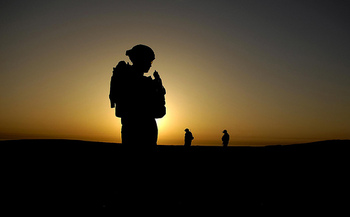
By Alison Larsen
Seven years after the Iraq invasion, The Chilcot Inquiry has stirred up old tensions about the rights and wrongs of American and UK military intervention.
But what role did the media play in reporting the conflict? An estimated 3,000 journalists reported on the Iraq war, including 800 embedded with allied forces, making it one of the most intensely watched wars in history.
Iraq was a war in real time: during earlier wars like Vietnam, limited technology and lengthy editing processes meant news from the ground was reaching the airwaves and newspapers two or three days after being filed. Jack Colwell, an American Studies professor, explained in an article for The Notre Dame Observer in 2004:
“The nice thing about [the older system] was you had two or three eyes or gatekeepers to look at it [and evaluate its importance],”...“Now you’ve got a reporter corresponding from the back of a tank in the desert of Iraq. It’s riveting; it gives you a perspective of what it’s like but what does it really tell you about the overall conflict?”
Many people thought it could be difficult for journalists to remain impartial if they got too close to the military - but on the other side of the fence, how much of an embedded reporter’s work reached the public uncompromised by media bosses or the government?
A former media advisor to the Australian military (via The Age) recently revealed that army events were often "stage-managed" and that the truth was commonly "blurred" when officials gave out information.
Though some may consider the British media more neutral in its support of the war compared to media outlets in America, Rupert Murdoch’s best-selling Sun and News of the World papers, were mostly in tune with Tony Blair’s invasion policy.
And it wasn't just the red-tops as Inayat Bunglawala, columnist and founder of the Muslims4UK group, wrote in an article for The Guardian, that the Sunday Times, Sunday Telegraph and Observer all came out in favour of the war editorials.
In another analysis of pro-war bias in coverage of Iraq, the World Socialist Web Site reveals the BBC provided the lowest ratio of coverage to dissenting views, at just two per cent.
The Frontline Club is holding a special event - Iraq: The Media Enquiry - next Wednesday 24th February. For media enquiries please contact [email protected].
Photo credit: The U.S. Army, via Flickr